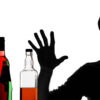These newer alcohol abuse drugs have fewer side effects than older medications and work, in some instances, to help drinkers cut back on their intake.
The idea of a drug to treat a drug (in this case, alcohol) dependence may seem odd, but the emergence of drugs that treat alcohol abuse should be good news to the 1 in 7 American adults with an alcohol use disorder. The newer drugs, which work to help drinkers cut back on their intake, have fewer side effects than older medications.
No single drug will work for everyone with an alcohol dependency (see New Alcohol Abuse Drugs Gaining Respect, and some people see no benefits from the medications at all. But the 4 drugs approved by the FDA to treat alcohol dependency (a fifth, nalmefene, is available outside the US) are worth a look.
The last drug FDA-drug approved to treat alcohol abuse came in 2006, but there are promising trials indicating that some medications approved for other indications may also be useful for alcohol dependency.
First we’ll start with trade-offs to consider with each of the approved drugs and then discuss some of the potential other drugs on the horizon.
Approved Drugs for Alcohol Dependency
Disulfiram (Antabuse)
- First approved by the FDA in 1951, disulfuram is a pill that produces uncomfortable physical symptoms (e.g. vomiting and sweating) when you begin drinking again. Usually first taken daily for 1-2 weeks.
- Although best for people already committed to abstinence, it may also help newly abstinent individuals avoid alcohol during an upcoming social event. Likely to be ineffective if you aren’t highly motivated and/or in therapy. Users need to abstain from alcohol for at least 12 hours before taking it.
- The most common side effect (if you continue to not drink) is drowsiness. If you also drink, side effects are usually minor (nausea, vomiting, sweating, and palpitations) but in rare cases can cause visual problems, arrhythmia, seizures, heart attacks, congestive heart failure, liver failure and psychosis, or death.
- If you have a history of heart disease, diabetes, hepatitis C, hypothyroidism, epilepsy, brain damage, kidney disease, liver cirrhosis or psychosis, use extreme caution.
- Don’t also take any alcohol-containing products like cough syrup or mouthwash, and also avoid contact with and breathing the fumes of paint, paint thinner, shellac and varnish. Exposure to even a small amount of these products when using disulfiram may lead to problems like facial flushing, throbbing headache, shortness of breath, vomiting, nausea and dizziness.
- Avoid if pregnant or nursing.
More information about Disulfiram (Antabuse) (NIH)
Acamprosate (Campral)
- An oral pill approved by the FDA in 2004 that needs to be taken 3 times a day, so compliance can be a problem.
- Unlike disulfiram, won’t cause unpleasant physical symptoms if you resume drinking.
- Works only if you have already stopped drinking; appears to stabilize brain chemistry and lessen the chance of drinking again. Does not prevent withdrawal symptoms but may help lessen some of the uncomfortable responses such as insomnia and anxiety. Helps prevent a return to drinking only as long you take it.
- Diarrhea is the most commonly reported side effect with acamprosate. Other common side effects include headaches, nausea and gas or joint or muscle pain. Unlikely but serious side effects include suicidal thoughts, severe depression, hearing or vision changes, seizures and serious allergic reactions. Call your doctor immediately if you notice chest pain, trouble breathing, fast heart beat, or if you have an allergic reaction such as hives, itching, or a tingling, burning or numbness in your face, hands, arms, legs and feet.
- Overall, the drug’s side effects do not seem to cause users to stop treatment.
- Use caution you’re taking antidepressants or street drugs. Also use caution if driving a car or operating machinery as acamprosate may affect your ability to think and make decisions.
Find more information about Acamprosate (Campral) (NIH)
Naltrexone (Revia), oral; Vivitrol, injected
- Revia is a daily pill that works by short-circuiting the high that comes with drinking. Vivitrol is a monthly, injectable form of naltrexone that dulls the high that comes with drinking.
- Best if you’re already abstinent, but may also help reduce heavy drinking.
- Generally well tolerated, but may cause stomach cramping, diarrhea, headaches, anxiety, insomnia, weakness and muscle pain. Less common, but potentially more worrisome side effects have been found to include hallucinations, depression and confusion; in rare cases, can also lead to suicidal thoughts. Can cause liver damage if taken in large doses.
- Stop taking all opioid-containing street drugs or medicines at least 7 days before starting Vivitrol.
- Avoid if you already have liver disease, or certain cough and diarrhea medicines.
- Avoid if pregnant.
- Revia approved by the FDA in 1994. Vivitrol in 2006.
Find more information about Naltrexone (Revia) (NIH)
Find more information about Naltrexone (Vivitrol), injected (NIH)
Drugs Under Investigation for Alcohol Dependency
Nalmefene (Selincro), oral; (Revex), injection;
- As an injection, nalmefene (Revex) was approved to treat opiate addiction and overdoses (It was taken off the US market in 2008 due to poor sales.). A tablet form, Selincro, is available in Europe to treat alcohol dependence. Selincro has yet to be approved by the FDA for this purpose.
- Works like naltrexone but appears to be more potent, lasts longer in the body and poses less risk to the liver.
- Typically taken as a pill on “as-needed” basis, such as on days when there is a high risk of drinking. Works best in heavy drinkers who want to cut back but who are unlikely to quit entirely. Not suitable for anyone who needs to stop drinking immediately.
- In a 2014 study, patients taking nalmefene tablets along with psychotherapy saw a reduction in he number of heavy drinking days and mean daily total alcohol consumption comnpared to those taking a placebo and therapy.
- Most common side effects include nausea, dizziness, insomnia and headache. Nalmefene can also cause fast heart rate, agitation, confusion and hallucinations.
- If you have depression, a history of seizures or mild to moderate liver or kidney disease, use extreme caution.
- Avoid if you have severe liver or kidney problems, or are taking any opioid-containing medicine. Also avoid if you have recently been dependent on opioids like heroin, or are experiencing symptoms of opioid withdrawal or severe alcohol withdrawal (e.g., delirium, seizures or hallucinations).
Topiramate (Topamax), oral
- Topiramate is currently approved as an migraine drug and an anticonvulsants.
- Targets the neurotransmitters GABA and glutamate in the brain.
- A 2007 study published in the Journal of the American Medical Association that enrolled people that were currently drinking found that those taking topiramate had fewer drinking days than those given a placebo.
- A 2015 review of studies found that topiramate could be considered a first-line treatment alcohol-use disorders, noting that the drugs has been well tolerated in alcohol abuse trials.
- Common side effects include nausea, tremor, weight gain or loss, hair loss, dizziness, tingling in extremities, memory difficulties, concentration problems, anxiety, irritability. Rare side effects include blood in the urine, loss of bladder control, nose bleeds, buzzing in the hearing and breathing troubles.
Gabapentin (Neurontin), oral
- Another anticonvulsant that is approved to treat epilepsy and diabetic nerve pain.
- A study published in 2014 in JAMA Internal Medicine found that adults with alcohol dependence that took gabapentin were more likely to be abstinent or refrain from heavy drinking compared to those on a placebo. Also, those on the active drug reported fewer cravings and less depression and insomnia.
- Common side effects include drowsiness, tiredness or weakness, dizziness, headache, blurred vision, anxiety, memory problem, nausea, vomiting, heartburn, diarrhea and constipation. More serious side effects include rash, itching, swelling of the face, difficulty swallowing or breathing and seizures.
Varenicline (Chantix), oral
- Varenicline is approved as a smoking cessation aid.
- The drug has been plagued by reports of unusual side effects including severe mood changes, hallucinations, paranoia, anxiety, panic and suicidal ideation.
- A 2013 study published in the Journal of Addiction Medicine and conducted by scientists at the National Institutes of Health found that participants in the varenicline group had significantly lower weekly percent heavy drinking days compared to those on placebo.
This feature is an update of an article published September 4, 2014.






